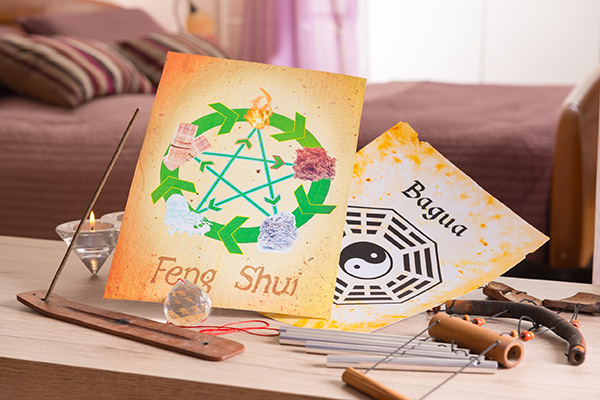How Your Reading Can Transform Your Life
 During a recent reading, a client asked me a question that many people may be wondering about: “If nothing in our future is set in stone, why have a psychic reading at all?”
During a recent reading, a client asked me a question that many people may be wondering about: “If nothing in our future is set in stone, why have a psychic reading at all?”
It’s a fair question that opens the door to a deeper understanding of our life path and soul journey. An authentic reading is never about one fixed future. We play a significant role in shaping our own destinies.
Psychics read the energy of probable outcomes, as well as possibilities and choices yet to be made, and the energetic and spiritual influences surrounding a person’s life path. During a reading, I usually see multiple paths unfolding before someone, each of which is shaped by their current intentions, actions, and willingness to grow.
It’s worth noting that not every reading shows multiple paths. Sometimes, there’s only one path. Sometimes, none appear at all! This is never a warning or a bad omen but rather a signal that someone may feel stuck and need guidance or clarity to move forward.
In this particular client’s case, the message was clear: if she remained passive, little would change. “The universe does not move unless you do,” I reminded her. Her heartache was real, but so was her ability to influence what came next. Three distinct paths of free will were revealed to her by spirit.
When her curiosity lit up, I knew she was ready to receive the message as a gift rather than as judgment. It offered her clarity in a moment of uncertainty.
Feng Shui Your Home For A Happier, Peaceful Life
 I am very much into how our thoughts and feelings help create our future. However, it needs to be asked what external factors affect those thoughts and feelings in the first place, such as our environment, for example. Therefore, the ‘Queen of Clutter’ (that being myself) would like to discuss how Feng Shui could help you attract better fortune into your life. Feng Shui is an ancient art from China, which involves balancing energies in any particular place. Here is how you can do it.
I am very much into how our thoughts and feelings help create our future. However, it needs to be asked what external factors affect those thoughts and feelings in the first place, such as our environment, for example. Therefore, the ‘Queen of Clutter’ (that being myself) would like to discuss how Feng Shui could help you attract better fortune into your life. Feng Shui is an ancient art from China, which involves balancing energies in any particular place. Here is how you can do it.
Begin With The Bagua
A bagua map (also called pakua) consists of nine squares, each one symbolizing an essential part of a balanced life. This map can be used in any room in your house, as a guide to finding the right area for positioning things.
You see, particular spots in any given room and particular objects contain the best energy possible, and a Bagua map will help you pinpoint these spots. All you need do is align the bottom part of your bagua map with the entrance to your room, and arrange things in their proper place thereafter.]
Get To Know Your Map
Should you be serious about using Feng Shui effectively, then understanding the bagua and what each section of it represents, is vital to your future success with this science. Quite simply, there is no other way than by taking your time and applying due consideration to the process of learning. In doing so, you should reap immense rewards, achieving a balanced and happier environment, and therefore a happier more balanced you.
How I Learned To Trust My Psychic Premonitions
 I was just 16 years old when I had my first powerful premonition.
I was just 16 years old when I had my first powerful premonition.
At the time, I didn’t know what to call it. I didn’t have the right words or spiritual understanding to describe the feeling. All I knew was that something inside me, like a quiet inner voice, spoke with a certainty that was not just in my imagination. It felt like a clear knowing.
A close family member had recently become engaged to his long-time girlfriend. They were the perfect couple. They were always together, and they had a lot of potential. It seemed like their love would last forever.
Everyone in our family, including our friends, thought we would be the kind of couple who could overcome any challenge together. Their future was full of possibilities.
One afternoon, he excitedly told me she had passed the exams to join the police force. They had just bought a home together. The future looked great, and there was a lot of potential. I smiled at him, feeling happy for him.
But something didn’t feel right. A soft inner voice whispered: She will leave him for a policeman.
This simple, unexpected thought bothered me, but I pushed it away. Maybe it just me worrying about the stories I had heard about adult relationships that didn’t end well.
Three months later, she left him and started a relationship with a fellow police officer.
A Fresh Start That Goes Beyond New Year’s Eve!
 There’s something undeniably magical about New Year’s Eve. Since childhood, I’ve felt the enchantment of this time: the sparkle of possibility, the promise of new goals, the thrill of setting intentions for an amazing new chapter.
There’s something undeniably magical about New Year’s Eve. Since childhood, I’ve felt the enchantment of this time: the sparkle of possibility, the promise of new goals, the thrill of setting intentions for an amazing new chapter.
But as the wheel of the years has turned, I’ve also come to understand a deeper truth. While the New Year offers us a beautiful symbolic reset, the real power of transformation isn’t confined to the stroke of midnight. In fact, we can embrace a fresh start at any moment our spirit calls for it.
Yes, the end of the year can be a potent time for reflection and redirection, but it’s also easy to fall into the trap of waiting.
We tell ourselves we’ll begin anew after the holidays, next week, or next year, when the truth is, our power to change is always in the present.
So, whether you’re welcoming the New Year with open arms or simply seeking a shift within, remember that the most meaningful resolutions come from alignment with your true values and vision.
After all, it is how we evolve in the long run that really matters. In simple terms, by putting your words into action, preferably by using the guidelines outlined above, you should be much more successful in achieving your goals, whatever time of year it may be.
The following guidelines will help you to set intentions for 2026 that will last beyond New Year’s eve.
Change Your Habits, Change Your Life!
 As 2025 comes to an end and the New Year is upon is, many of us are considering how we can improve our lives and become a better version of ourselves.
As 2025 comes to an end and the New Year is upon is, many of us are considering how we can improve our lives and become a better version of ourselves.
Today we might be sitting with our shiny new diary or journal, or a beautiful 2026 calendar full of inspiring affirmations, in the hope it will inspire us to lead healthier, happier, more fulfilling and successful life. But the single biggest thing that we can do to change our lives for the better and really smash our goals is to change our habits.
What we habitually do is who we will ultimately become. Our daily physical habits are our metaphysical destiny. In fact, research would suggest that approximately 95% of the things people do daily are purely habitual.
From the spiritual perspective, I always look to archetype of The Archer in the Wildwood Tarot deck as the positive symbology to help me break bad habits and create new, better ones.
The Archer is a genuinely motivating card that symbolizes strength, direction, aim and focus. When it comes to habits, it reminds us to focus on the positive ones and that by doing so, we will achieve our goals by hitting our target. Gaze upon his symbology, and it should help give you the strength to do so.
For example, I am a chocoholic, the results of which is clearly evident around my middle-aged waistline! How do I personally break the habit of a lifetime and develop a healthier relationship with chocolate? Well, the guidelines are the same for any other goal we may have:
How To Have A Peaceful Christmas This Year
A s magical a time of year as Christmas may be, it can still be somewhat stressful.
s magical a time of year as Christmas may be, it can still be somewhat stressful.
Nevertheless, with a little pre-planning, you should be able to get your Xmas off to a good start and enjoy the celebrations to the maximum without experiencing too much stress and drama in the process!
How good is that? Here’s how.
Set Clear Intentions
Let go of the idea that Christmas must be traditional and ‘perfect,’ and that you must make it that way for everybody. Set instead a clear intention for what your ideal Christmas will be.
After that, all you need to do is make plans that go along with your vision. Having established what Christmas really means to you, you can then use it as a guide to prepare your celebrations.
Keep It Simple
Simplicity ensures peace and calm, whereas complexity causes stress and drama. It really is as simple as that! It is imperative that any Christmas plans you make are as simple, straightforward and as streamlined as possible. Doing so should help to create a sense of calm and empowerment, which you will no doubt need to take into the New Year with you.

